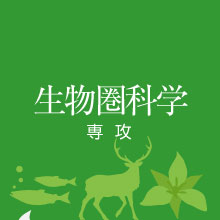Call for international joint seminar for environment and ecosystem research | 環境科学・生態系に関する国際合同実習(英語)|2019年7月3~11日|札幌・雨龍研究林
北方生物圏フィールド科学センターの柴田英昭先生より、国際合同実習のお知らせです。
環境科学、生態学、生物多様性、生態系科学に関する修士院生を対象とした英語で行うトレーニングコースです。関心を持つ博士院生の参加も歓迎いたします。なお、本実習は環境科学院のフィールド科学特別実習Ⅰとして実施しますので、1単位を取得することができます。
2019年7月3日~11日の期間に行い、前半は札幌キャンパスでの室内講義や技術講習、8~11日は雨龍研究林(幌加内町)での合宿形式での野外実習を行います。なお、6日(土)午前は植物園の見学がありますが、7日(日)はプログラムがありません。
20名程度の少人数でグループワークを中心としたもので、さまざまな分野の研究手法、研究背景や理論、現在の研究の到達点などを学ぶことができます。台湾の国立東華大学との合同実習、北海道大学Summer Instituteとして実施しますので、海外の院生と交流できる良い機会となります。受講料はかかりません。雨龍研究林への移動は大型バスで移動しますので交通費は不要です。ただし、研究林での食費・宿泊に関する実費をお支払い頂きます。
学内からは10名の定員を予定しており、すでに数名のエントリーがあります。ご関心のある方は柴田英昭(shiba@fsc.hokudai.ac.jp)まで、5月20日(月)までにお申し込みください(氏名、所属・学年、Email)。
本学教員から柴田英昭、内海俊介、福澤加里部、中村誠宏、中路達郎、中村剛、Ram Avtarに加えて、台湾の国立東華大学から、Ming-Chien Su, Shih-Chieh Chang, You-Cheng Hsuの3名が担当します。
メールの末尾に講義アウトライン、講義・実習テーマのリストを添えていますので、ご参照ください。
ご不明な点があれば遠慮なくお知らせください。
柴田英昭
————-
Dear Graduate students,
This is a call for participant of International Training Course on Environment Science and Ecology which will be held during July 3rd – 11th, 2019. This course will be conducted in English for master course, but PhD students who has interest is also welcomed.
The early part of the course consists of various indoor lecture and technical guidance in Sapporo campus. Then, intensive field course will be conducted from July 8th until 11th in Uryu Experimental Forest (Horokanai town) of Hokkaido University. Besides, there will be a short guidance tour to Botanical garden in the Saturday morning, while no program on Sunday.
The participant can get 1 credit of “Special Course for Field Science I” of Graduate School of Environment Science.
Participant will learn various research backgrounds, basic theory, current understandings and research approach for environment science, ecology, biodiversity and ecosystem science through various group works throughout the course. This program is conducted as a joint course with National Dong-Hwa University (Taiwan) and a Summer Institute of Hokkaido University, which bring a great opportunity to interact with international students.
There is no course fee. We will use the shared large bus (with free of charge for participants) to transport between Sapporo campus and Uryu experimental Forest. Participant has to pay for the accommodation fee of experimental forest and foods which is a quite reasonable price.
The capacity of participant from Hokkaido University is about ten students. Please let me know if you are willing to join this course (Hideaki Shibata, shiba@fsc.hokudai.ac.jp) (with your name, affiliation, year (i.e. M1 or M2) and the email address).
The lecturers from Hokkaido University include Hideaki Shibata, Shunsuke Utsumi, Masahiro Nakamura, Karibu Fukuzawa, Tatsuro Nakaji, Koh Nakamura and Ram Avtar. The lecturers from National Dong-Hwa University (Taiwan) consist of Ming-Chien Su, Shih-Chieh Chang and You-Cheng Hsu.
Please refer the following titles for lectures and field courses.
Please feel free to ask me if you have any questions.
Best regards,
Hideaki Shibata
<Outline of the course>
This is the joint international training course on ecosystem and environment research. The 10-days course include several indoor lectures, field course and group work (i.e. discussion and presentation) in Sapporo campus and Uryu Experimental Forest. Participants will learn basic theory, recent findings and research methods in field on various topics in ecology, ecosystem and environmental science. The lecture will be given by several professors of Field Science Center for Northern Biosphere, Hokkaido University and Department of Natural Resources and Environmental Studies, National Dong Hwa University (Taiwan). This course is conducted based on the MOU between Hokkaido University and National Dong Hwa University.
<Lecture / Field course (tentative)>
– Ecosystem carbon fluxes
– Environmental Fate & Transportation: Monitoring and assessment
– Bird Banding in Taroko National Park, Taiwan
– Remote sensing techniques for tree phenology monitoring
– Species-differences of leaf phenology and physiological function
– Watershed scale nitrogen dynamics in forests
– Soil nitrogen availability and plant belowground biomass along the hillslope of the forest
– Insect and plant interactions in forests
– Introduction to Evolutionary Community Ecology
– Analysis of ecological communities: Insects on riparian trees
– Application of UAV and GIS for environment change studies














